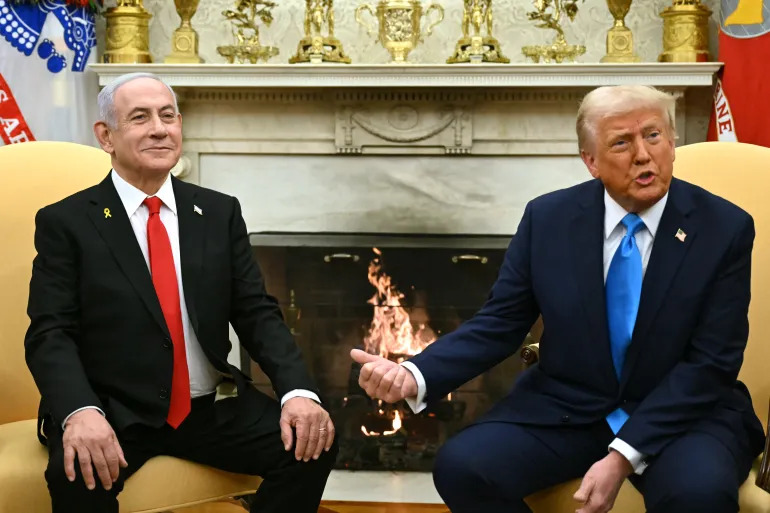
Jin Liangxiang, Senior Research Fellow, Shanghai Institute of Int'l Studies
Mar 25, 2025
U.S. policy ultimately will be defined by Israel. With Donald Trump in the White House, the Middle East will become even more vulnerable, and the security situation may erode. Saudi Arabia may not get the security guarantees it wants from the United States, and Iran will continue to be in the picture.

Jin Liangxiang, Senior Research Fellow, Shanghai Institute of Int'l Studies
Mar 20, 2025
The future of the region should be decided by the countries there, not by external actors. Strategic autonomy, an idea frequently raised by some Arab countries in recent years, shows they’re waking up to reality. There should be no illusions about the future.
Niu Xinchun, Professor, China-Arab Research Institute, Ningxia University
Feb 20, 2025
The Israelis have two primary war objectives: the complete elimination of Hamas and the rescue of all hostages. But these goals are inherently contradictory and cannot be pursued at the same time. Israel is thus faced with a difficult choice about which to prioritize.
Vasilis Trigkas, Visiting Assistant Professor, Schwarzman College, Tsinghua University
Dec 31, 2024
As the world looks back into a turbulent 2024, the Nobel Peace Prize awarded to Hiroshima and Nagasaki survivors underscores the urgent need for renewed global efforts to mitigate nuclear risks. In the face of rising geopolitical tensions and technological advancements, we must revive strategic dialogues and prioritize diplomatic solutions, following President Kennedy’s example, to ensure global security and address the existential threats posed by nuclear weapons and AI-enhanced warfare. And this call demands leadership.
Joseph S. Nye, Professor, Harvard University
Dec 27, 2024
Prediction is always difficult, but doubly so in the case of the US president-elect. Donald Trump not only speaks loosely and changes his positions often; he al
Niu Xinchun, Professor, China-Arab Research Institute, Ningxia University
Dec 23, 2024
Middle Eastern nations are capitalizing on Donald Trump’s penchant for unprincipled, no-limits deal-making, even though he has yet to assume office. These countries are scrambling to position themselves for the high-stakes negotiations that lie ahead.

Richard Javad Heydarian, Professorial Chairholder in Geopolitics, Polytechnic University of the Philippines
Dec 13, 2024
The West’s dominating influence around the world has come under heavy scrutiny as open conflicts rage on in Europe and the Middle East. Does this year’s BRICS Summit, hosted in Russia, represent an inflection point in the global community’s tolerance for U.S.-led order?
Li Zixin, Associate Researcher, China Institute of International Studies
Nov 22, 2024
Threats of violence are pushing the region to the brink. Israel said it would exact a “deadly and heavy” toll for any Iranian attack. In turn, Iran promised to “retaliate tenfold,” and its hardliners want to lift the ban on developing nuclear weapons. Lines are blurring that were once seen as inviolable.
Jade Wong, Senior Fellow, Gordon & Leon Institute
Nov 18, 2024
The Russia-Ukraine conflict, which broke out in February 2022, marked the latest episode of the use of warfare as a tool to accelerate change in the world order. But two other events disturbed Asia and the Middle East: U.S. House Speaker Nancy Pelosi’s visit to Taiwan in August 2022 and the Israel-Hamas conflict, which broke out in October 2023. People began to worry about potential interplay across three war zones. Such a prospect has become more prominent in recent months, and may be worthy of note by historians.
He Wenping, Senior Research Fellow, Charhar Institute and West Asia and Africa Studies Institute of the China Academy of Social Sciences
Oct 25, 2024
Such a conflict would not align with American interests, as there would be no assurance of success and it would be ethically unjustified. War between Israel and Iran could spiral into an uncontrollable and devastating Armageddon in the Middle East.